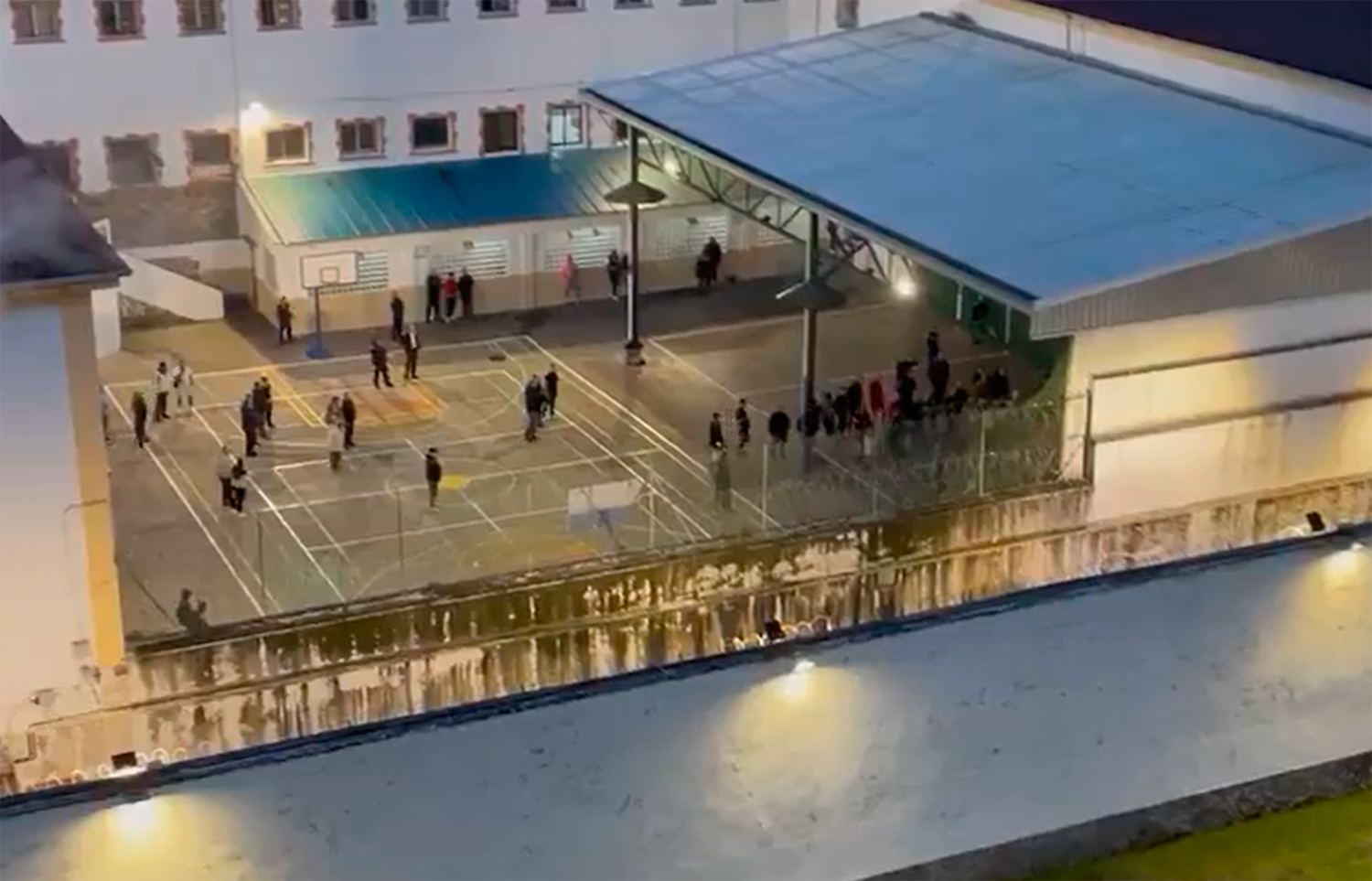Sare urges the Department of Justice and Human Rights of the Basque Government to apply the ordinary prison policy to Basque political prisoners
- At the press conference held on 20 August, Sare called on the new Department of Justice of the Basque Government "a more proactive attitude". They have denounced that the standardisation of prisons "is still a long way off", given that of the 148 prisoners "there may be more than a hundred" of them already under semi-freedom or conditional release.

Today, 20 August, the Sare Citizens' Network presented an assessment of the evolution of the situation of prisoners in the last year. There are currently 148 Basque prisoners, of whom 142 are in prisons in Euskal Herria, according to sources from the Basque Department of the Interior. Spokesmen for the hearing, Nahikari Iturbe and Joseba Azkarraga, explained that since August last year the Basque Government has approved 32 progressions.
Since August last year, according to data from Sare, the treatment commissions in the prisons of Araba, Bizkaia and Gipuzkoa have proposed to the Central Prison Administration the move to the third grade in 34 cases, of which the Basque Government has approved 32. In total, 29 prisoners have accepted the resources of the National High Court. However, the National Hearing has appealed six of the 32 applications admitted, and in four cases the third grade has been dismissed.
The Sare Citizens' Network has denounced that since the dissolution of ETA in 2018 its name is used as "wildcard for social and political confrontation". Following the changes in the Basque Government, the management of the prisons of Álava, Bizkaia and Gipuzkoa has changed manually. Maria Jesús San José has become an advisor for Justice and Human Rights, Alfonso Gómez as vice-advisor for Justice and Inés Soria as an advisor. "The infrastructure has been improved, a working group has been set up with staff working bags, and a number of measures have already been taken to characterize the Basque Model of Penitentiary Institutions," they explained.
For all these reasons, the members of the Network have asked the Vice-Ministry of Justice: “Apply ordinary penitentiary policy without privileges, exceptions, discrimination and special criteria.” To this end, they asked him to accept the proposals of prison professionals and to have a "proactive attitude" to the limits set by the laws. In particular, they have denounced that these laws promote criteria for prisoners to serve their sentences in full in prison and prevent years of imprisonment served in other states of the European Union from being taken away.
Therefore, Sare hopes that the new leaders of the Justice Department "will facilitate interaction" with the actors around these issues. Specifically, they have thanked the "positive and normalised" relations of recent years to those responsible who have just left their jobs: "They have listened to us, even though our requests have not had a positive response," he added.
"Dark lights"
Beyond that, Sare considered that the Basque Government's performance since 2021 has been "dark lights", although he added that steps forward have been taken: "With less determination than is necessary, but progress has been made." Regarding the prison classification of prisoners, they argued that the situation is "far from normalization", as the number of progressions that have been given has been "very limited": "A large number of prisoners have not been given an option to move to a third prison level," he added. According to Sare, more than 100 prisoners comply with the requirement to be released in semi-freedom or under condition.
On the way back home, however, other steps can be taken. One of them is the application of article 100.2 of the Prison Regulations, which allows you to leave prison to work or study during the day. Sare has observed a change in the use of this article in the Basque Government: "In September 2023 it was used in very short hours, only for volunteering or training. However, the types of activities that may be the subject of the article have subsequently been expanded." However, Sare added that it should also be used to "reconcile family life and to help rebuild social and family relationships".
On the other hand, there are two-day prison permits each. The prosecutor has no possibility of recourse to the resources, but Sare believes that their use has been "limited", although it has been "fundamental" in the process of reinsertion: "Authorizations are required to be recognized because half of the penalty has been complied with, and that's more than the law sets."
The assessment is also "negative" with regard to the situation of older prisoners. At a press conference, they explained that there are prisoners over 70 years of age, who have been in prison for more than twenty years, and that the law indicates that the third grade is the best way to comply with them: "All these prisoners have been in prison for 20 years, never leaving, and their health is weak," he added.
Jar gaitezen 2025erako proposamen politiko gisa, Espainiako Auzitegi Kolonialaren (AN) epai guztiak berrikusten hasteko eta makila bakoitzak bere belari eusteko.
Unionismoarekin lerrokatutako alderdi, sindikatu eta gizarte-erakunde gehienek, eta ez bakarrik horrela... [+]
Next Saturday, 11 January, the Sare citizens' network called for a new demonstration in Bilbao in defence of the rights of Basque prisoners. This is a unique opportunity to move forward on the path of coexistence in our people, after decades of violent confrontation and, even... [+]
Hatortxu Rock jaialdiko 29. edizioa egingo da larunbatean Atarrabian. Sarrerak jada agortuta daude, baina txandak osatzeko laguntza behar da oraindik.
What surprised you the most when you left jail? I've been asked many times in the last year and a half.
See that the streets of Bilbao are full of tourists and dogs with two legs, for example? Or the changes in the political situation? The first one has tired me and annoyed me... [+]



















